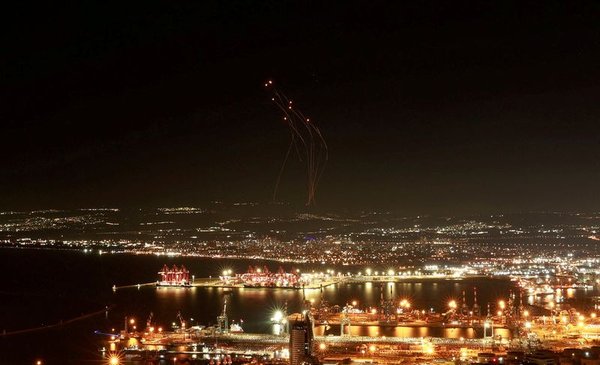
In an interview with DW, UNHCR spokeswoman Shabia Mandoo said: “We are angry.” The United Nations High Commissioner for Refugees, UNHCR, has spoken of a “humanitarian disaster” following the Israeli military’s recent airstrikes in Lebanon. Lebanon is one of UNHCR’s largest operations. The country’s first office was opened in 1964. Since then, the UN system has supported local populations, refugees and stateless people. According to the UNHCR, at least 1,540 people have been killed in Lebanon, including more than 100 Syrians, since Hamas attacked Israel in October 2023 and escalated the conflict. On September 23 alone, Israel’s first large-scale airstrikes killed more than 500 people.
On Friday, the Israel Defense Forces (IDF) said it had struck the Hezbollah headquarters where Shiite militia leader Hassan Nasrallah was killed. Lebanon’s health ministry reported six more dead and 91 injured. In an interview with DW, UNHCR spokesperson Shabia Mandou described the intensity of the conflict, civilian insecurity and internal displacement in Lebanon from her perspective. “Protect the public” Deutsche Welle: How is the situation in Lebanon following Israel’s recent airstrikes? Shabia Mandou: The events of the past three days mark the worst attacks on Lebanon since 2006. Ivo Freijsen, UNHCR representative in Lebanon, speaks of a “humanitarian disaster”.
The blasts claimed hundreds of civilian lives. They also killed two UNHCR colleagues. We are outraged and deeply saddened by the killing of two dear UNHCR Lebanon family members and a relative. Even in war, civilians have the right to be protected from the dangers of military operations. This should be guaranteed. Like UN Secretary-General Antonio Guterres, we call for an urgent de-escalation of tensions and demand that all parties protect civilians, including humanitarian workers, in accordance with the provisions of international humanitarian law. What does UNHCR do for civilians, refugees and internally displaced people in the country? We support displaced people across the country, working closely with authorities and humanitarian partners, particularly in southern Lebanon. This includes cooperation between the Lebanese Ministry of Health and the World Health Organization (WHO) in providing basic goods, support for newly displaced people, first aid kits and equipment doctors, increasing to 42. Hospitals supported by UNHCR, as well as distributing related items such as mattresses, blankets, kitchen utensils and other essential items in the south of the country. Cash assistance is also coordinated. Does UNHCR support the creation of new refugee camps in Lebanon or in neighboring Jordan? Yes, we are complementing national relief efforts. In providing shelters, we assist the Lebanese government in establishing temporary collective shelters to accommodate victims. Millions of refugees live in Lebanon, most of them from Syria. What would happen if not only them but also a large part of the local population had to leave? Both Lebanese citizens and refugees, who are generously welcomed into the country, have suffered from hostility. Thousands of Syrians and Lebanese are fleeing the violence in Lebanon and crossing the border into Syria. Refugees who went home to Lebanon in search of safety have been displaced again. This double displacement aggravates their vulnerability. There are also victims among refugees: we know of at least 231 Syrians injured (UNHCR knows of 223 cases, including 77 men, 72 women and 82 children). More than 59 Syrians were killed. How does UNHCR support people fleeing Lebanon to Syria? UNHCR, together with the Syrian Arab Red Crescent (SARC), is providing assistance to people arriving at four border crossings between Lebanon and Syria. UNHCR and SARC are bringing water, mattresses, blankets and basic food to the border. At the border posts set up by UNHCR in collaboration with WHO and SARC last year, visitors are provided with rooms to rest. They also receive information about services available after crossing the border and about 100 UNHCR-funded community centers across the country. Does UNHCR also support internally displaced people in Israel? The Israeli government has not yet asked UNHCR to assess the needs and/or provide assistance to the displaced. If an official request is made to UNHCR, we are certainly willing to work with the Government of Israel to assess needs and identify specific areas that require additional support. UNHCR spokesperson Shabia Mandoo responded to DW’s questions by email.
With information from the Deutsche Welle agency

“Introvert. Thinker. Problem solver. Evil beer specialist. Prone to fits of apathy. Social media expert. Award-winning food fanatic.”





More Stories
Two influencers drown after refusing to wear life jackets: “ruining selfies”
Uruguay 2024 election results: who won and when is the second round | Waiting to know whether there will be a runoff or not
Uruguay: Lacalle Pou leaves with his figure on the slopes | The Marcet and Asteziano scandals hit the right-wing ruler